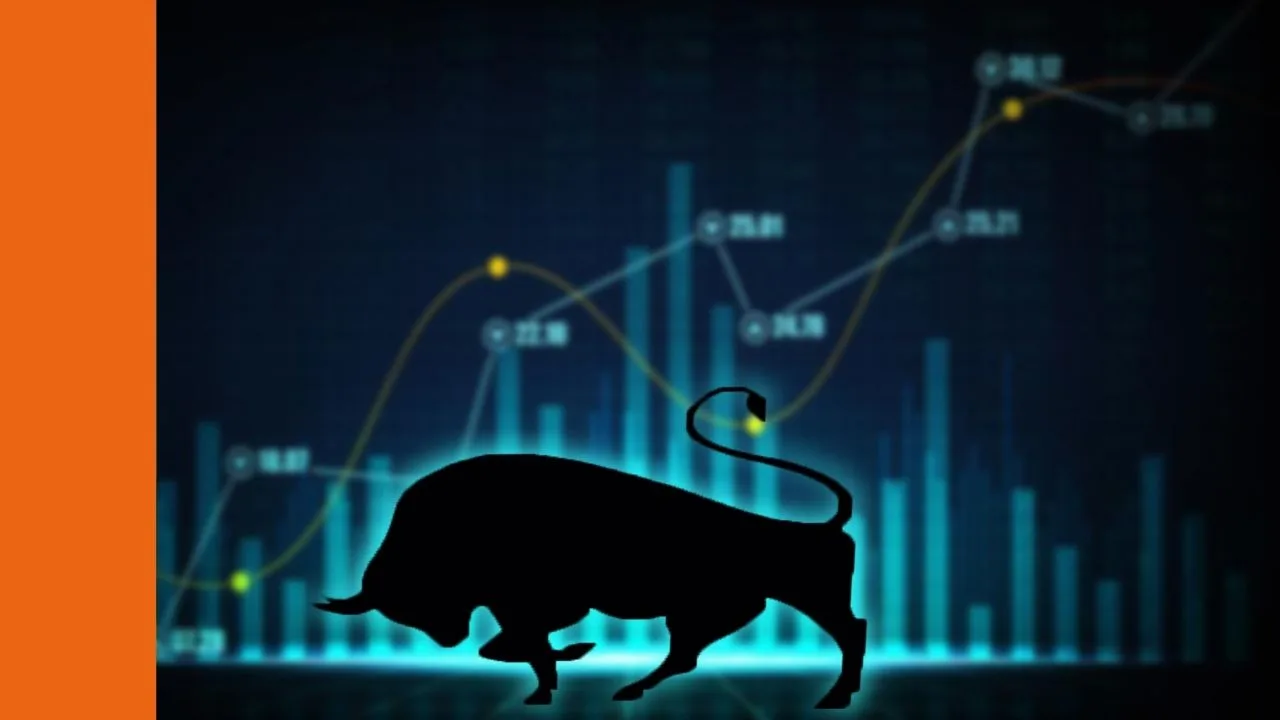There is no doubt about the strong economic links between Australia and Asia.
According to the Australian Trade and Investment Commission, the Asian region accounted for 62 per cent of Australia’s two-way trade last year for a compound annual growth rate of 5.6 per cent over the past decade. In Australian dollar terms, our trade with Asia has jumped by a massive A$175 billion over the past ten years.
Aussie Investors Should Know This…
In its latest global economic outlook report, the International Monetary Fund (IMF) said growth in Asia is forecast at 5.6 per cent in 2018/2019, while inflation is projected to be subdued.
Despite these positive forecasts and data-backed investment opportunities in Asia, Australian retail investors may be missing out on opportunities to invest in Asian companies. This is because Australian investors as a group suffer from significant levels of ‘home country bias‘.
In this article, we’ll provide an overview of the top 5 Asian markets that have the potential to boost growth and diversification in Australian investors’ portfolios.
Given our physical proximity and strong economic links to Asia, I believe the time is right for Australian investors tap into the various markets on our doorstep.
Let’s have a look at these top 5 Asian stock markets that can boost your portfolio growth and diversification.
China
There is no question that China is at the top of the list to consider. China is the second largest economy in the world. It is also the most populous country with a population of over 1.35 billion people. With its ongoing economic reforms and development, China has overtaken Japan as the world’s second-largest economy since 2010.
In terms of investment opportunities, Chinese companies remain attractive to international investors wanting to tap into the buying power of billions of Chinese consumers. It’s no wonder we’ve seen the rise of the likes of Baidu, Alibaba and Tencent (or ‘BATSs’ which I wrote about here), which now rank among the top companies in the world. China also has a rapidly growing capability in artificial intelligence (AI).
Investors looking to tap directly into the Chinese market can invest either through the Shanghai Stock Exchange (SSE) or the Shenzhen Stock Exchange (SZSE). Other avenues include investment via Hong Kong or even listings of Chinese companies on US exchanges.
Why invest in Chinese stocks?
- China is one of the largest and fastest growing economies in the world
- Strong domestic demand makes it less influenced by outside factors
- A wide spectrum of industry choices
- The potential for appreciation of the Chinese yuan
- Opportunities as China further opens up the economy to the outside world
Some of the leading companies in China include Sinopec, China Southern Airlines, CITIC Securities Company, Shandong Iron & Steel Company. And of course, the BATs – Baidu, Alibaba and Tencent – which are considered China’s answer to Facebook, Amazon, Netflix and Google (aka FANGs).
Japan
Japan is the world’s third-largest economy. Its stock market is also the biggest in Asia. Globally, Japan is the fourth largest stock market after the New York Stock Exchange (NYSE), the NASDAQ and the London Stock Exchange (LSE).
Known primarily for its electronics and automobile industries, Japan is reputed as a highly advanced and innovative country and home to global makers of computers, digital cameras and other electronic gadgets.
For those looking to diversify their portfolio, Japan provides the opportunity to tap into car makers, computer companies as well as financial services providers. Japan has a well-established and mature financial market that makes it attractive to international investors.
Why invest in Japan stock market?
- The biggest stock market in Asia
- World-class technological innovation and product development
- Japanese companies have a global presence and reputation
- Sectors with large growth potential (e.g. Japan has the second largest healthcare market in the world)
- Japanese companies are benefiting from the economic development of its Asian neighbours, in particular, the growing Chinese market
If you are looking to invest in the Japanese stock market, some of the leading companies that you can consider including are Toyota, Honda, Daiichi Sankyo, Nomura, Daiwa Securities, Mitsubishi Chemicals and even Monex Group (the owner of our company).
Singapore
Singapore is one of the few city-states in the world. Though it lacks natural resources, its strategic location and well-established business infrastructure have made Singapore an attractive regional hub for international trade, shipping and air transport.
Singapore continues to be well-regarded as a triple-A rated economy, and it is also the world’s second-freest economy after Hong Kong. Major industries in Singapore include banking and finance, biomedical and pharmaceutical, tourism, logistics, petrochemical, and construction.
Why invest in Singapore stock market?
- No capital gains tax
- World’s 2nd freest economy – free flow of capital and information
- World’s 2nd and Asia’s most creditworthy nation
- Transparent government policies and high political stability
- Diversified economy – from financial services, tourism, to pharmaceuticals, logistics, petrochemical, etc.
- Asia’s most international exchange with more than 40% of companies listed on SGX originating from overseas
Singapore is home to some of the major and highly respected companies such as Singapore Airlines, Singapore Post, SMRT Corporation Ltd, United Overseas Bank Ltd, Chartered Semiconductor Manufacturing Ltd and Keppel Corporation.
Hong Kong
Hong Kong is not only a popular tourist destination. It is often described as the melting pot of eastern and western cultures because of its unique location and history. The city has become an important hub in East Asia with its global connections, allowing businesses and investors easy access to China.
The Special Administrative Region of Hong Kong has been part of China since 1997 but is self-governing on a day-to-day basis. With its commitment to small government, low taxes, and light regulation, Hong Kong has been the world’s freest economy since the 1970s.
Whether you are an investor looking for opportunities in Hong Kong and Asia, or a business seeking investors or markets to tap into, most likely Hong Kong will be able to provide the opportunities and infrastructure to meet your investment goals.
In recent years, international companies, particularly Chinese firms, have sought to list at the Hong Kong Stock Exchange, which enabled them to tap into a wide network of global investors.
If you are looking to diversify your portfolio and to tap into Hong Kong’s robust financial markets, you will be joining the massive community of international investors who are actively involved in this market.
Why invest in Hong Kong stock market?
- No capital gains tax
- World’s freest economy – free flow of capital and information
- Transparent and effective laws and regulations
- International companies’ favoured venue for IPO fund-raising
- A wide range of products include ETFs and Warrants
Here are some of the major companies in the Stock Exchange of Hong Kong that you can consider to invest in Tencent Holdings, Bank of China, PetroChina, Industrial and Commercial Bank of China and China Construction Bank.
South Korea
South Korea may not be as well-known to Australian investors compared to Hong Kong, Singapore or China. But South Korea is one of the world’s most technologically advanced economies, with the world’s fastest broadband speeds, and a strong digital economy across commerce, education, entertainment and government.
It is the home of some leading corporations including Samsung Electronics, Hyundai Motor and POSCO. With numerous tax benefits that the Korean government provide to foreign investors, over half of the Global Fortune 500 companies have invested in Korea.
Over the past few years, South Korea has also gained global attention due to what is known as the “Korean Wave”, the growing popularity of all things Korean – from fashion, cosmetics, film, music to foods. This worldwide Korean cultural popularity creates huge business potentials.
If you are looking to diversify your portfolio and to tap into one of the fastest growing economies in the world, Korea can provide access to some of the leading companies at the forefront of growth and technological innovation.
Why invest in the Korea stock market?
- “Korean Wave” – rising popularity of Korean brands around the world
- A vast domestic market with sophisticated consumers driving demand
- Technological competitive in shipbuilding, electronics and fast-growing automotive industries
- Geographical advantage of proximity to the huge markets of China and Japan
If you are looking to invest in South Korea, here are some of the companies you may want to consider: Hyundai Motor, Samsung Electronics, Ssangyong Motor, Semicon Light and Pan Entertainment.
These are just some of the massive and obvious investment opportunities in Asia. And if you are keen to tap into this growth market, it may be time to include some of these companies in your investment portfolio.
Get more insights
This article was contributed by Alex Douglas, Managing Director of Monex Securities Australia (AFSL: 363 972), a new international share broker.
The content of this article is given for general information only. As general information, no consideration or evaluation is given to the investment objectives or financial situation of any particular person. Trading and investing involve substantial financial risk. All readers of this article should make their own evaluation of the merits and suitability of any financial products and/or advice or seek specific personal advice as to the appropriateness of engaging in any activity referred to in this article in light of their own particular financial circumstances and objectives.










